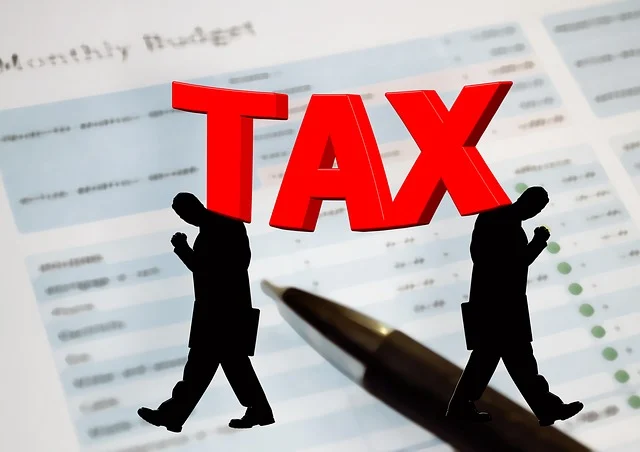Understanding the Greek Tax System: A Comprehensive Guide

Navigating the tax system in any new country can be challenging, and Greece is no exception. The Greek tax system has undergone significant reforms in recent years to align with EU standards and improve transparency. Whether you’re a resident, non-resident, freelancer, or business owner, understanding how taxes work in Greece is essential for compliance and financial planning. This guide will break down the key components of the Greek tax system to help you stay informed.
1. Who Pays Taxes in Greece?
Your tax obligations in Greece depend on your residency status:
Tax Residents:
- You are considered a tax resident if you spend more than 183 days in Greece during a calendar year or have strong ties to the country (e.g., permanent home, family, or economic interests).
- Tax residents are taxed on their worldwide income , including earnings from abroad.
Non-Tax Residents:
- Non-residents are taxed only on income earned within Greece, such as rental income, employment income, or business profits.
2. Types of Taxes in Greece
The Greek tax system includes several types of taxes, each applicable to different sources of income or activities.
A. Income Tax
Income tax rates in Greece are progressive, meaning higher earners pay a larger percentage of their income in taxes. Here’s an overview of the current rates (as of 2023):
| Taxable Income (€) | Tax Rate (%) |
|---|---|
| Up to €10,000 | 9% |
| €10,001–€20,000 | 22% |
| €20,001–€30,000 | 28% |
| €30,001–€40,000 | 36% |
| Over €40,000 | 44% |
- Special Note : Freelancers and self-employed individuals may qualify for reduced tax rates under certain conditions, such as earning less than €40,000 annually.
B. Social Security Contributions
Both employees and employers are required to contribute to social security funds, which provide benefits like healthcare, pensions, and unemployment support.
- Employee Contribution : Typically around 13.33% of gross salary.
- Employer Contribution : Around 24.56% of gross salary.
Self-employed individuals must also pay social security contributions based on their declared income.
C. Corporate Tax
Businesses operating in Greece are subject to corporate tax on their profits. The standard corporate tax rate is 24% (as of 2023). Certain industries, such as shipping, may benefit from special tax regimes.
D. Value Added Tax (VAT)
Greece applies VAT to most goods and services. The standard VAT rate is 24% , but reduced rates apply to specific categories:
- 13% : For essential goods like food, water, and pharmaceuticals.
- 6% : For books, newspapers, and some agricultural products.
E. Property Taxes
Property owners in Greece are subject to annual property taxes, known as ENFIA (Single Property Ownership Tax) . The amount depends on factors like location, size, and value of the property.
F. Capital Gains Tax
Capital gains from the sale of assets (e.g., real estate, stocks) are taxed at a flat rate of 15% . However, exemptions may apply for primary residences or long-term investments.
G. Inheritance and Gift Tax
Inheritance and gifts are subject to taxation, with rates ranging from 1% to 40% , depending on the relationship between the donor and recipient and the value of the inheritance/gift.
3. Filing Your Tax Return
Taxpayers in Greece must file an annual tax return by June 30th of the following year. Here’s what you need to know:
A. Required Documents
- Proof of income (e.g., payslips, invoices, rental agreements).
- Social security contributions.
- Property ownership details (for ENFIA calculation).
- Bank statements and investment records (if applicable).
B. Online Filing
Most taxpayers are required to file their tax returns electronically through the Taxisnet platform, managed by the Greek Independent Authority for Public Revenue (AADE). To access Taxisnet, you’ll need:
- A tax identification number (AFM) .
- A digital certificate or credentials provided by AADE.
C. Deadlines and Extensions
While the standard deadline is June 30th, extensions may be granted in special circumstances. Late filings incur penalties and interest charges.
4. Tax Benefits and Deductions
Greece offers various deductions and incentives to reduce taxable income:
- Personal Allowance : A basic tax-free allowance is available for all taxpayers.
- Family Deductions : Additional allowances for dependents, such as children or elderly relatives.
- Homeownership Deduction : Partial relief on mortgage interest payments.
- Retirement Savings : Contributions to pension plans may qualify for tax breaks.
- Green Investments : Tax incentives for energy-efficient home improvements or renewable energy projects.
5. Double Taxation Treaties
Greece has signed double taxation treaties with over 50 countries to prevent individuals and businesses from being taxed twice on the same income. If you’re earning income abroad, consult these treaties to determine your tax liabilities.
6. Common Challenges for Expats
Foreigners living in Greece often face unique challenges when dealing with the tax system:
- Language Barrier : Many official documents and platforms are in Greek. Hiring a bilingual accountant or tax advisor can help.
- Complexity of ENFIA : Calculating property taxes can be confusing without professional assistance.
- Freelancer Regulations : Self-employed individuals must navigate additional reporting requirements and potential audits.
7. Tips for Staying Compliant
To avoid penalties and ensure smooth tax compliance, follow these tips:
- Keep accurate records of all income, expenses, and receipts.
- File your tax return on time and pay any owed taxes promptly.
- Consult a local tax expert or accountant familiar with Greek regulations.
- Stay updated on changes to tax laws, as reforms are common.



